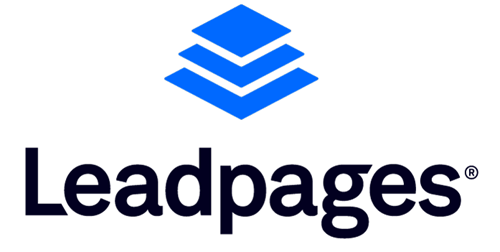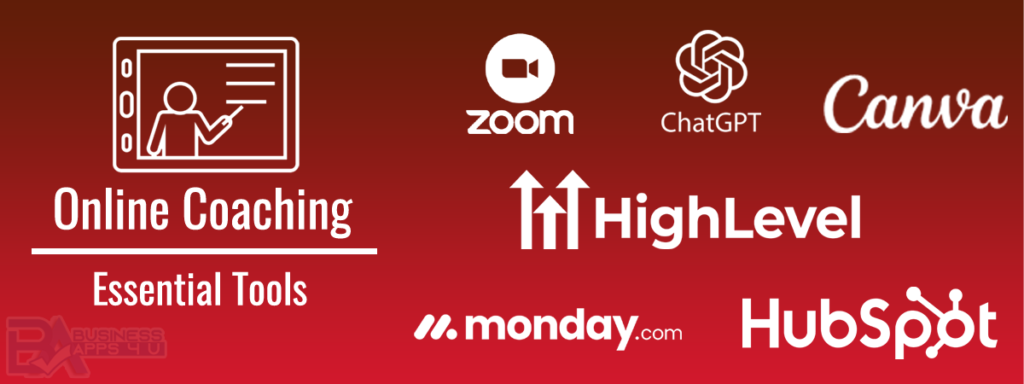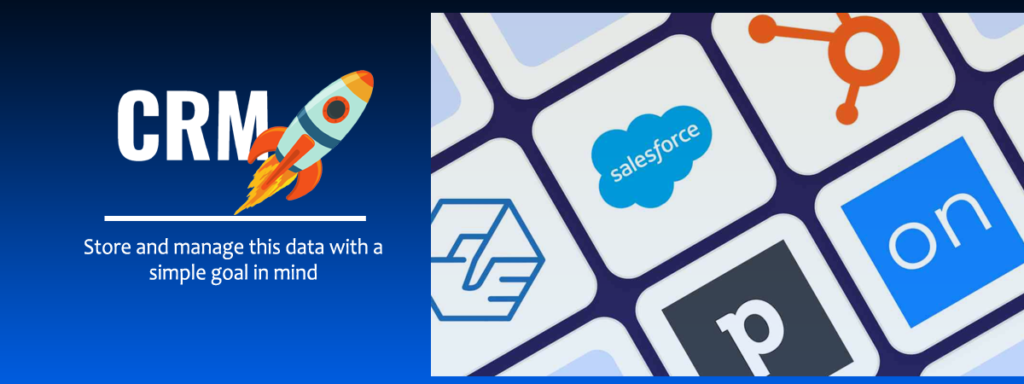Unlocking the Potential: A Brief Overview of Online Coaching Businesses
In recent years, online coaching businesses have surged in popularity, revolutionizing the way individuals seek personal and professional development. This innovative approach to coaching offers convenience, flexibility, and accessibility, making it an attractive option for both coaches and clients alike.
Online coaching businesses encompass a wide range of services, including life coaching, career coaching, health and wellness coaching, business coaching, and more. Through virtual platforms such as video calls, email, messaging apps, and online courses, coaches can connect with clients from around the world, transcending geographical barriers and time constraints.
The rapid growth of online coaching businesses can be attributed to several factors. Firstly, the digital age has ushered in a new era of connectivity, where individuals are accustomed to seeking information, guidance, and support online. As a result, the demand for virtual coaching services has skyrocketed, driven by the need for personalized and accessible solutions to life’s challenges.
Moreover, the global Covid-19 pandemic has played a significant role in accelerating the growth of online coaching businesses. With lockdowns and social distancing measures in place, traditional in-person coaching sessions became impractical or impossible. As a result, both coaches and clients turned to online platforms as a safe and convenient alternative. This shift in behavior not only normalized online coaching but also highlighted its effectiveness and efficiency.
When it comes to the top categories of online coaching businesses, several niches have emerged as particularly popular. These include:
- Life Coaching: Helping individuals set and achieve personal and professional goals, overcome challenges, and enhance overall well-being.
- Career Coaching: Assisting clients in navigating career transitions, exploring new opportunities, and developing skills for success in the workplace.
- Health and Wellness Coaching: Providing guidance and support in areas such as nutrition, fitness, stress management, and holistic health practices.
- Business Coaching: Empowering entrepreneurs, business owners, and professionals to optimize performance, improve leadership skills, and achieve business growth and success.
- Relationship Coaching: Supporting individuals and couples in building healthy relationships, resolving conflicts, and enhancing communication and intimacy.
Online coaching businesses are not limited to a specific demographic or profession. Anyone with expertise, passion, and a desire to help others can start an online coaching business. Whether you’re a seasoned professional looking to transition into coaching or an aspiring entrepreneur eager to make a difference, the digital landscape offers endless opportunities to connect with clients and make a meaningful impact.
Managing Online Coaching Business
Utilizing automation, management, and other software tools is paramount for effectively managing an online coaching business. These tools streamline administrative tasks, enhance productivity, and improve client management processes. Automation software can automate scheduling, invoicing, and email marketing, saving valuable time and reducing human error. Management software, such as CRM systems and project management tools, helps organize client information, track progress, and facilitate collaboration.
Additionally, other software solutions, like video conferencing platforms and online course platforms, enable seamless communication and delivery of coaching services to clients worldwide.

Benefits of using applications to manage Coaching Business
Using online tools can be highly beneficial for a coaching business for several reasons:
- Automations: Leveraging the advantages of Automations and AI to manage a wide variety of functions with minimum human intervention and hence saving time. It also reduces the chances of things falling through cracks.
- Efficiency and Productivity: Online tools automate and streamline various aspects of running a coaching business, such as scheduling appointments, managing client information, and invoicing. This saves time and allows coaches to focus more on delivering value to their clients.
- Accessibility and Flexibility: With online tools, coaches can work from anywhere with an internet connection. This flexibility allows them to conduct coaching sessions remotely, collaborate with clients and team members, and manage their business on the go.
- Scalability: Online tools can help coaching businesses scale more easily by providing solutions for managing a growing client base, automating repetitive tasks, and optimizing processes. This scalability allows coaches to handle more clients and expand their business without being overwhelmed.
- Enhanced Client Experience: Online tools can improve the client experience by offering features like easy appointment scheduling, secure payment processing, and access to resources and support materials. This can lead to higher client satisfaction and retention rates.
- Professionalism and Branding: Using professional online tools for communication, project management, and marketing can enhance the credibility and professionalism of a coaching business. Consistent branding and a polished online presence can attract more clients and build trust with existing ones.
- Data Management and Analysis: Many online tools provide analytics and reporting features that help coaches track key metrics, monitor client progress, and make data-driven decisions to improve their coaching services and business strategies.
- Cost-Effectiveness: While some online tools may involve subscription fees or upfront costs, they often provide a high return on investment by saving time, increasing efficiency, and enabling business growth. Compared to traditional offline methods, online tools can often be more cost-effective in the long run.
- Collaboration and Communication: Online tools facilitate collaboration and communication among coaches, clients, and team members. Whether it’s through video conferencing, project management platforms, or messaging apps, effective communication is essential for delivering successful coaching outcomes.
Leveraging online tools can help coaching businesses operate more efficiently, scale effectively, enhance client experiences, and ultimately achieve greater success in a competitive market.
Challenges in Growing Coaching Business
Coaches often face several challenges when it comes to growing and managing their businesses. Some of the biggest problems include:
- Finding Clients: Acquiring clients is often one of the most significant challenges for coaches, especially when starting or expanding their practice. Generating leads, converting them into paying clients, and maintaining a steady stream of clients can be demanding tasks.
- Marketing and Visibility: Many coaches struggle with effectively marketing their services and increasing their visibility in a crowded marketplace. Developing a strong personal brand, creating compelling marketing content, and utilizing various marketing channels to reach their target audience can be daunting.
- Setting Rates and Pricing: Determining the right pricing strategy for coaching services can be challenging. Coaches often struggle with setting rates that reflect the value of their services while remaining competitive in the market and meeting their financial goals.
- Time Management: Balancing client sessions, administrative tasks, marketing efforts, professional development, and personal life can be overwhelming for coaches. Poor time management can lead to burnout, decreased productivity, and difficulty in growing the business.
- Managing Finances: Handling finances, including budgeting, invoicing, tracking expenses, and preparing taxes, can be complex and time-consuming for coaches. Without proper financial management, coaches may struggle to maintain profitability and sustainability in their businesses.
- Client Retention and Satisfaction: Retaining clients and ensuring their satisfaction is essential for the long-term success of a coaching business. Coaches must deliver value, maintain strong client relationships, and continuously adapt their services to meet evolving client needs.
- Professional Development: Staying current with industry trends, acquiring new skills, obtaining certifications, and pursuing ongoing professional development is vital for coaches to deliver high-quality services and remain competitive in the market. However, finding the time and resources for professional growth can be challenging.
- Legal and Regulatory Compliance: Coaches need to navigate legal and regulatory requirements related to their business operations, such as business registration, contracts, liability insurance, data protection, and compliance with industry standards and ethics guidelines.
- Technology and Systems: Adopting and managing technology tools and systems for client management, scheduling, communication, marketing, and financial management can be overwhelming for coaches, especially those with limited technical expertise or resources.
- Work-Life Balance: Maintaining a healthy work-life balance is crucial for coaches to prevent burnout, sustain their passion for coaching, and enjoy a fulfilling personal life. However, the demands of running a coaching business, combined with client commitments and administrative tasks, can make achieving work-life balance challenging.
Addressing these challenges requires a combination of strategic planning, ongoing learning, effective time management, leveraging resources and support networks, and prioritizing self-care. Coaches who can successfully navigate these obstacles are better positioned to grow and thrive in their businesses.
Top App Recommendations for Online Coaches
The top 10 online business tools and apps for a coaching business can vary based on individual needs and preferences. However, here’s a list of widely used tools that many coaching businesses find beneficial:
Zoom: Communication Tool
A popular video conferencing tool for conducting coaching sessions, webinars, and virtual meetings.
Features of Zoom:
- HD Video and Audio: Zoom offers high-definition video and crystal-clear audio quality, ensuring smooth communication during coaching sessions.
- Screen Sharing: Users can easily share their screens, making it convenient for coaches to share presentations, documents, or visuals with clients.
- Recording and Playback: Zoom allows sessions to be recorded, enabling coaches to review sessions later or share them with clients for reference.

Calendly
Helps in scheduling appointments and managing your calendar by allowing clients to book sessions based on your availability.
Features of Calendly:
- Automated Scheduling: Calendly syncs with your calendar and allows clients to view your availability and schedule appointments accordingly, reducing the need for back-and-forth emails.
- Customizable Availability: Users can set specific availability preferences, including buffer times between appointments and limits on the number of meetings per day.
- Reminder Notifications: Calendly sends automatic email reminders to both coaches and clients before scheduled appointments, reducing the likelihood of no-shows.
Google Workspace (formerly G Suite)
Provides essential productivity tools like Gmail, Google Drive, Google Docs, Sheets, and Calendar, which are useful for communication, collaboration, and document management.
Features of G Workspace:
- Gmail: Offers professional email hosting with features like custom email addresses, spam filtering, and integration with other Google services.
- Google Drive: Provides cloud storage for storing and sharing documents, presentations, and other files securely.
- Google Docs/Sheets/Slides: Collaborative document editing tools that allow real-time collaboration on text documents, spreadsheets, and presentations.
Trello or Asana
Project management tools that help in organizing tasks, setting deadlines, and tracking progress, both for individual and team projects.

Features of Trello or Asana:
- Task Management: Both Trello and Asana offer customizable boards or project views where tasks can be organized, prioritized, and assigned to team members.
- Due Dates and Reminders: Users can set due dates for tasks and receive reminders, ensuring timely completion of projects.
- Commenting and Collaboration: Team members can communicate and collaborate on tasks by leaving comments, attaching files, and mentioning others within the platform.
Coaching software platforms
Dedicated coaching software like CoachAccountable, CoachLogix, or Coach Catalyst, which offer features tailored specifically for coaching businesses, such as client management, progress tracking, and invoicing.
Features of Coaching softwares:
- Client Management: Dedicated coaching platforms offer features for organizing client information, tracking progress, and maintaining session notes.
- Goal Setting and Progress Tracking: Coaches can set goals with clients and track their progress over time, providing insights into their development.
- Invoicing and Payment Processing: Many coaching platforms include tools for generating invoices, accepting payments securely, and tracking financial transactions.
Canva
A graphic design tool for creating professional-looking visual content such as social media graphics, presentations, and marketing materials.
Features of Canva:
- Drag-and-Drop Design: Canva’s intuitive interface allows users to create visually appealing graphics by simply dragging and dropping elements onto the canvas.
- Templates and Layouts: Offers a wide range of pre-designed templates and layouts for various purposes, including social media posts, presentations, flyers, and more.
- Collaboration: Canva allows teams to collaborate on designs in real-time, making it easy to share feedback and work together on projects.
Buffer or Hootsuite
Social media management platforms that allow you to schedule posts across multiple social media channels, engage with your audience, and analyze performance metrics.

Features of Social Media Scheduling Tools:
- Scheduling Posts: Users can schedule social media posts in advance, allowing for consistent content distribution across multiple platforms.
- Analytics and Insights: Provides data on post performance, engagement metrics, and audience demographics, helping users understand what content resonates with their audience.
- Social Listening and Monitoring: Allows users to monitor mentions, comments, and conversations about their brand or industry across social media platforms.
Stripe or PayPal
Payment processing platforms that enable you to securely accept payments from clients for coaching services, subscriptions, or digital products.
Features of Payment Gateways:
- Secure Payments: Both Stripe and PayPal offer secure payment processing, protecting sensitive financial information during transactions.
- Customizable Checkout: Users can customize the checkout experience to match their branding and provide a seamless payment process for clients.
- Subscription Management: Supports recurring payments and subscription billing, making it easy to manage ongoing coaching services or membership programs.
HubSpot or Mailchimp
Email marketing platforms for building and managing email lists, sending newsletters, and nurturing client relationships through automated email campaigns.

Features of Email Marketing Tools:
- Email Campaigns: Allows users to create and send targeted email campaigns, newsletters, and automated drip sequences to nurture client relationships.
- List Management: Provides tools for managing email lists, segmenting contacts based on criteria like interests or engagement level, and maintaining GDPR compliance.
- Analytics and Reporting: Offers insights into email performance, including open rates, click-through rates, and conversion metrics, helping users optimize their email marketing strategies.
Evernote
A note-taking app that helps in organizing ideas, jotting down session notes, and storing resources for easy reference.
Features of Evernote:
- Note Organization: Evernote allows users to organize notes, documents, and resources into notebooks, tags, and stacks, making it easy to find and access information.
- Sync Across Devices: Notes sync seamlessly across devices, ensuring that users can access their information anytime, anywhere.
- Collaboration: Evernote supports collaboration by allowing users to share notes and notebooks with others, making it suitable for team projects and client collaboration.
Billing, Accounting and Finance Tools
For financing and accounting purposes, a reliable tool for coaching businesses is essential to manage income, expenses, invoicing, and financial reporting. Here’s a recommendation:
QuickBooks Online
Here are some key reasons why QuickBooks Online is a suitable choice:
- Invoicing: QuickBooks Online allows you to create professional-looking invoices and send them to clients directly from the platform. You can customize invoices with your branding, track their status, and set up recurring invoices for regular coaching sessions or subscription-based services.
- Expense Tracking: You can easily track business expenses by connecting your bank and credit card accounts to QuickBooks Online. It categorizes transactions automatically, simplifying the process of monitoring spending and ensuring accurate financial records.
- Income Tracking: QuickBooks Online helps you keep track of income from coaching sessions, workshops, digital products, or any other revenue streams. You can record payments received from clients and reconcile them with your bank deposits.
- Financial Reporting: The software offers various financial reports, such as profit and loss statements, balance sheets, and cash flow statements, providing insights into your coaching business’s financial health. These reports can help you make informed decisions and plan for the future.
- Integration: QuickBooks Online integrates with many other business tools commonly used by coaching businesses, such as payment processors, CRM systems, and project management platforms. This seamless integration streamlines workflows and ensures data consistency across different systems.
- Tax Preparation: QuickBooks Online simplifies tax preparation by organizing your financial data and providing reports that are useful for filing taxes. It also integrates with popular tax preparation software like TurboTax, further streamlining the tax-filing process.
- Accessibility: Being cloud-based, QuickBooks Online allows you to access your financial data from anywhere with an internet connection. You can manage your finances, create invoices, and run reports from your computer, tablet, or smartphone.
Overall, QuickBooks Online offers comprehensive features, ease of use, and scalability, making it an excellent choice for coaching businesses of all sizes to manage their finances efficiently and effectively.
Lead Generation tools for Coaching
Lead generation is crucial for growing a coaching business, and there are several tools available to help coaches attract and convert leads into clients. Here are some recommended lead generation tools for coaching businesses:
Leadpages
Leadpages is a powerful landing page builder that allows you to create high-converting landing pages quickly and easily. You can use Leadpages to design landing pages for free consultations, webinar registrations, lead magnets, and other offers to capture leads effectively.

OptinMonster
OptinMonster is a popular lead generation tool that helps you convert website visitors into subscribers and customers. It offers various opt-in forms such as pop-ups, slide-ins, and floating bars, along with advanced targeting and segmentation options to personalize your offers and increase conversions.
Sumo
Sumo provides a suite of tools to grow your email list and generate leads, including pop-ups, welcome mats, and smart bars. It also offers social sharing features and analytics to track the performance of your lead generation efforts.
ConvertKit
ConvertKit is an email marketing platform designed for creators, including coaches and consultants. It offers customizable opt-in forms, landing pages, and automated email sequences to nurture leads and build relationships with your audience.
LinkedIn Sales Navigator
LinkedIn Sales Navigator is a powerful tool for B2B lead generation, especially for coaches targeting professionals and businesses. It provides advanced search filters, lead recommendations, and InMail messaging features to connect with potential clients and decision-makers on LinkedIn.
Quora
Quora is a Q&A platform where you can answer questions related to your coaching niche and establish yourself as an authority in your field. By providing helpful and insightful answers, you can attract leads who are interested in your expertise and may become potential clients.
Facebook Lead Ads
Facebook Lead Ads allow you to create ads with built-in lead forms that users can fill out without leaving Facebook. You can target specific audiences based on demographics, interests, and behaviors, making it an effective tool for reaching potential coaching clients on social media.
Chatbots
Chatbots can engage website visitors in real-time conversations, answer common questions, and collect lead information through automated chat interactions. Tools like ManyChat or Chatfuel enable you to create and deploy chatbots on your website or social media platforms to capture leads and provide instant support.

Google Ads
Google Ads (formerly Google AdWords) allows you to target potential coaching clients through search ads, display ads, and video ads. By bidding on relevant keywords and creating compelling ad copy, you can drive targeted traffic to your website and capture leads who are actively searching for coaching services.
ReferralCandy
ReferralCandy is a referral marketing platform that helps you turn satisfied clients into brand advocates who refer new leads to your coaching business. It automates the referral process, incentivizes referrals with rewards or discounts, and tracks referral activity to maximize the effectiveness of your referral program.
These lead generation tools offer various features and strategies to attract, engage, and convert leads into clients for your coaching business. Depending on your target audience, marketing goals, and budget, you can choose the tools that best fit your needs and integrate them into your lead generation strategy.
These tools can streamline various aspects of managing a coaching business, from client communication and scheduling to marketing and financial management. However, it’s essential to evaluate your specific requirements and choose the tools that best fit your business needs and budget.
Conclusion
In conclusion, online coaching businesses represent a dynamic and transformative force in the world of personal and professional development. With their ability to transcend physical boundaries, leverage digital technology, and provide tailored support, online coaching businesses are poised to continue thriving in the years to come, empowering individuals to unlock their full potential and achieve their goals.
In essence, by leveraging these software tools, coaches can optimize efficiency, deliver exceptional client experiences, and scale their businesses more effectively in the competitive online coaching landscape.



